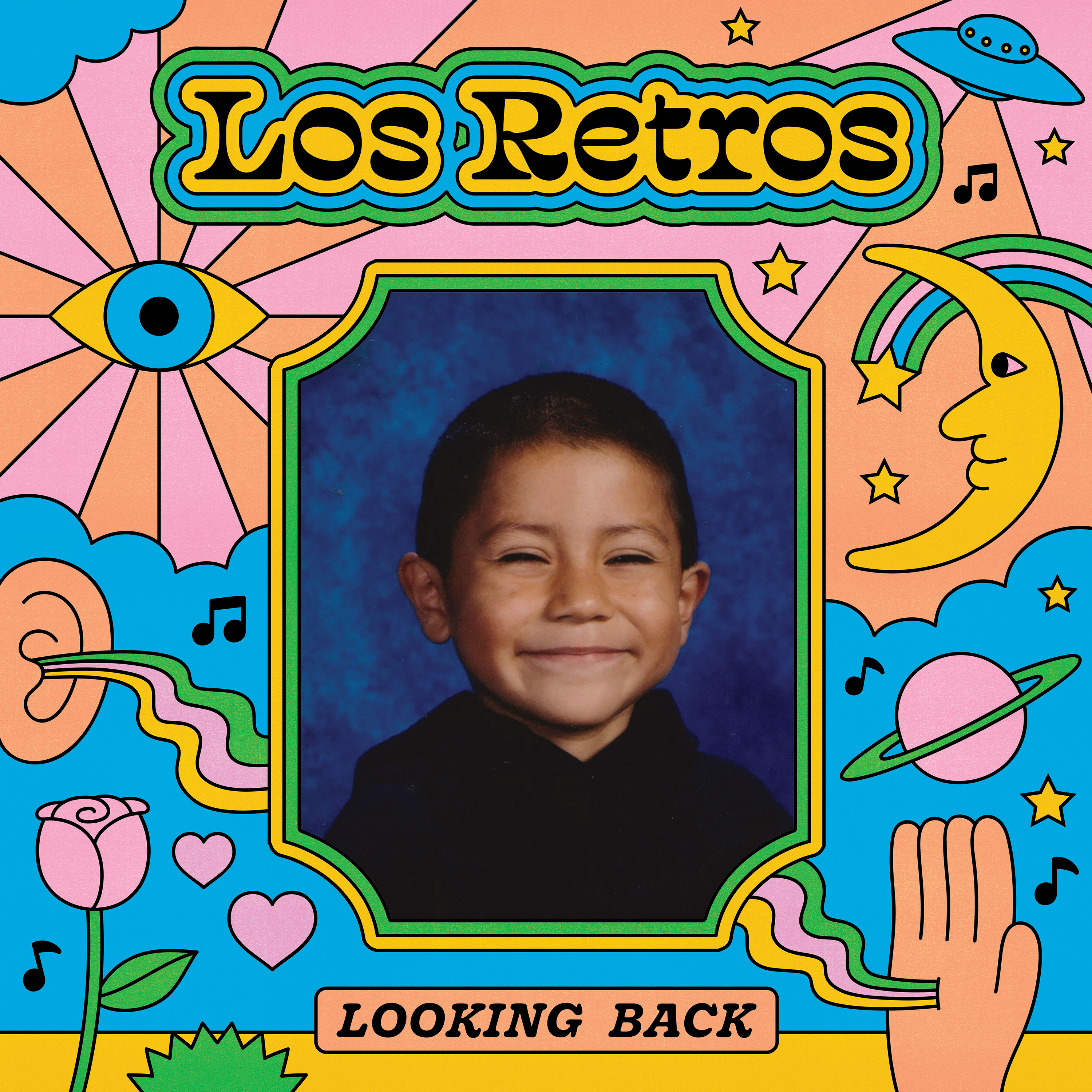This past year has taught us a lot about utilizing nostalgia as a tool to cope with the realities of the present. For 21-year-old Mauri Tapia, that concept is well embodied in the music he creates under the moniker Los Retros. From age 16, the artist has attempted to reinvent the sentiment in a way that could tap into what the future could be or, more specifically, sound like.
The multi-faceted musician with an affinity for the minimalistic, entered the blossoming Southern California indie-pop scene at a time when local players secured retro revival as a thriving musical movement. Los Retros’ reinvention of the aura of early Spanish soft-rock is what differentiates them from the abundant crowd of bedroom pop. Amongst the list of garnered fans was Stone Throw Records’ Peanut Butter Wolf who would sign the band under the label and put out their subsequent releases.
Now, Los Retros have delivered their latest EP, Looking Back—a compilation that reads like a longing love letter to a future muse. The album is the artist’s first release since 2020’s Everlasting. In it, Tapia continues to tap into his melodious magic carried through electronic synths, heavy bass lines and vibrant keys, all while experimenting with the concept of time.
By transporting us to the past on his newest endeavor, Tapia reimagines nostalgia in a way that quantifies emotion rather than time. The result is a bridged space where Latin pop dwells in what it has been and what it could be.
Looking Back is a love album that doesn’t reduce itself to the cliche.
While many artists have used quarantine to work on fresh projects, Los Retros have taken an unconventional approach. The latest collection borrows from session recordings during their debut EP Retrospect. While a few home recordings have been on the web for some time, this will be the first time they are available across streaming platforms as official releases.
In its most simple sense, Looking Back is a love album that doesn’t reduce itself to the cliche, normative form. Instead, the vulnerability fosters an intimate relationship with its listener. The music plays the role of the audience’s lover.
“My love, will you take my hand with virtue? For time has proved that I do, love you” the artist sings on the EP’s leading single, “Amtrak.” In addition to being a lover’s plea, the lyrics also play into the role of an artist extending their admiration for the audience absorbing the words. “Remember I am your lover forever” Tapia soothingly sings in the middle of the compilation. Doused throughout the listening experience are reminders that the music itself is there to become the listener’s partner, providing familiarity, comfort and an opportunity to receive love.
The music itself is there to become the listener’s partner.
Serving as the EP’s foundation is Tapia’s familiar and signature sound: Cohesive jazz, soul and funk-infused sonic melodies that reimagine Latin pop’s golden era in the ‘60s and ‘70s. As it strips down the show galore to simple dreamscape rhythms, it allows his love-fueled lyricism to become increasingly more emotionally raw, proving that simplification does not have to mean loss of depth.

Cohesive in nature, the tracklist offers enough variation in cadence to remain intriguing enough for a playthrough. Moving from upbeat tempos in “Amtrak” to more lackadaisical beats in “Deep Seated,” are tracks like “Likewise” that find their place somewhere in the middle. “Moon Ride” puts forth it’s psychedelic influence, while “Purple Nights” showcases Tapias hip-hop beat-making abilities. Its staples, like the first lead single “It’s Got To Be You,” elucidate the easy flowing, yet refined intersection of all of the aforementioned worlds.
While carrying direct nods to sounds of the past, Tapia does not shy away from the fact that he’s an imitator. As a music student, he uses imitation as a form of flattery, paying respect to the music that raised him as his artistic journey infuses new life into its DNA.
After the release of his very first EP Retrospect, Tapia mentioned to Remezcla that he’d “like Los Retros to be the exact same thing, just more fortunate.” Maybe, in the end, that’s exactly what Looking Back is. A declaration that with the backing of a famed label, prosperous personal life (marriage and newborn baby included), plus an ever-growing fan base, he is now what he always set out to be: exactly the same, just more fortunate.







